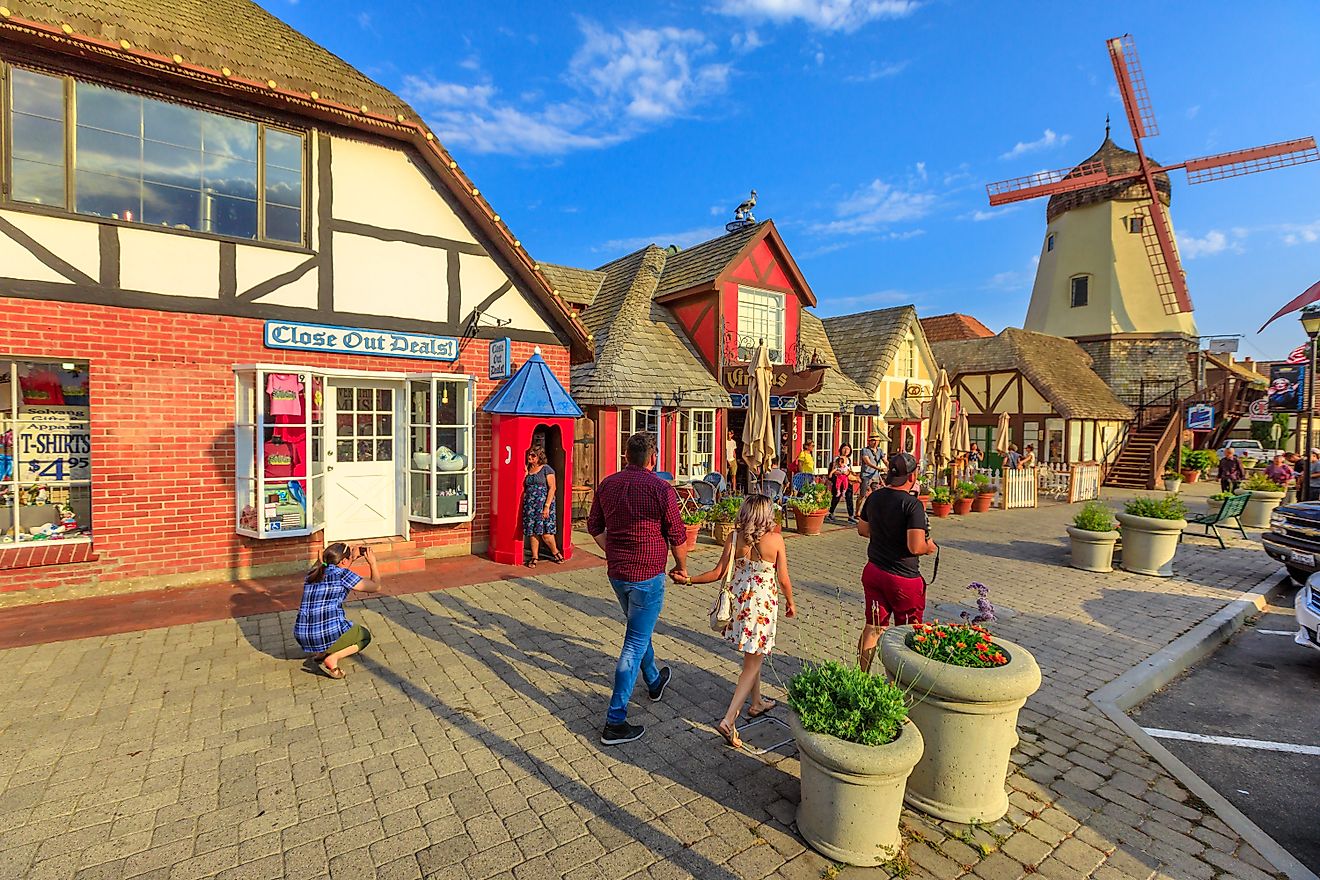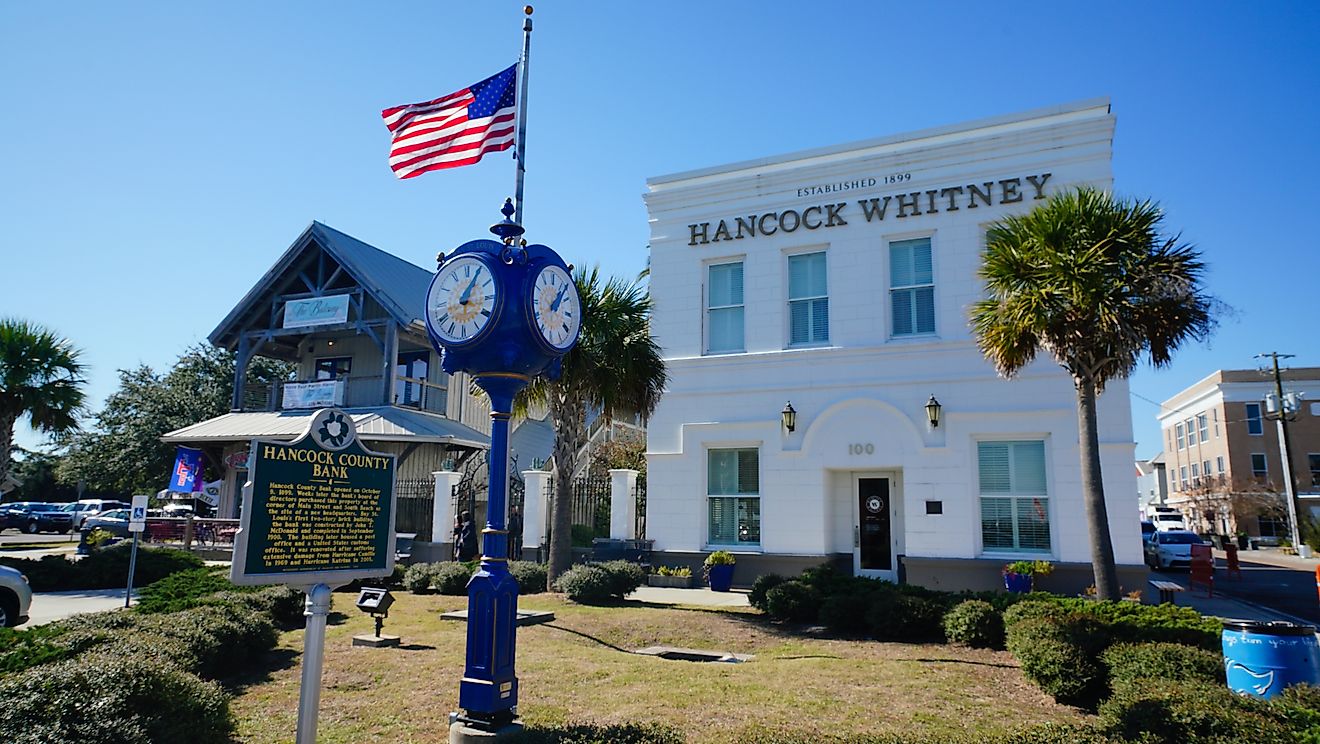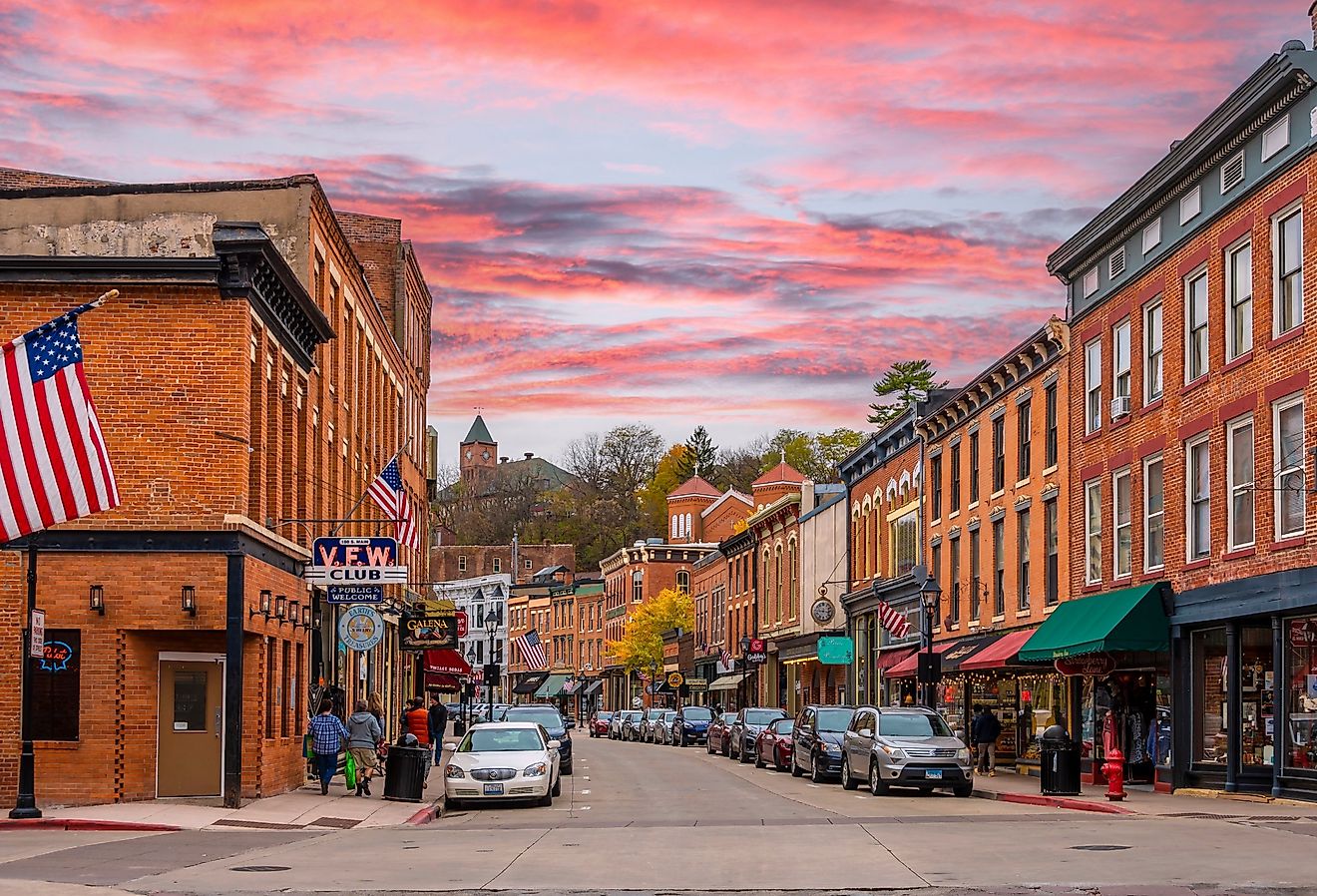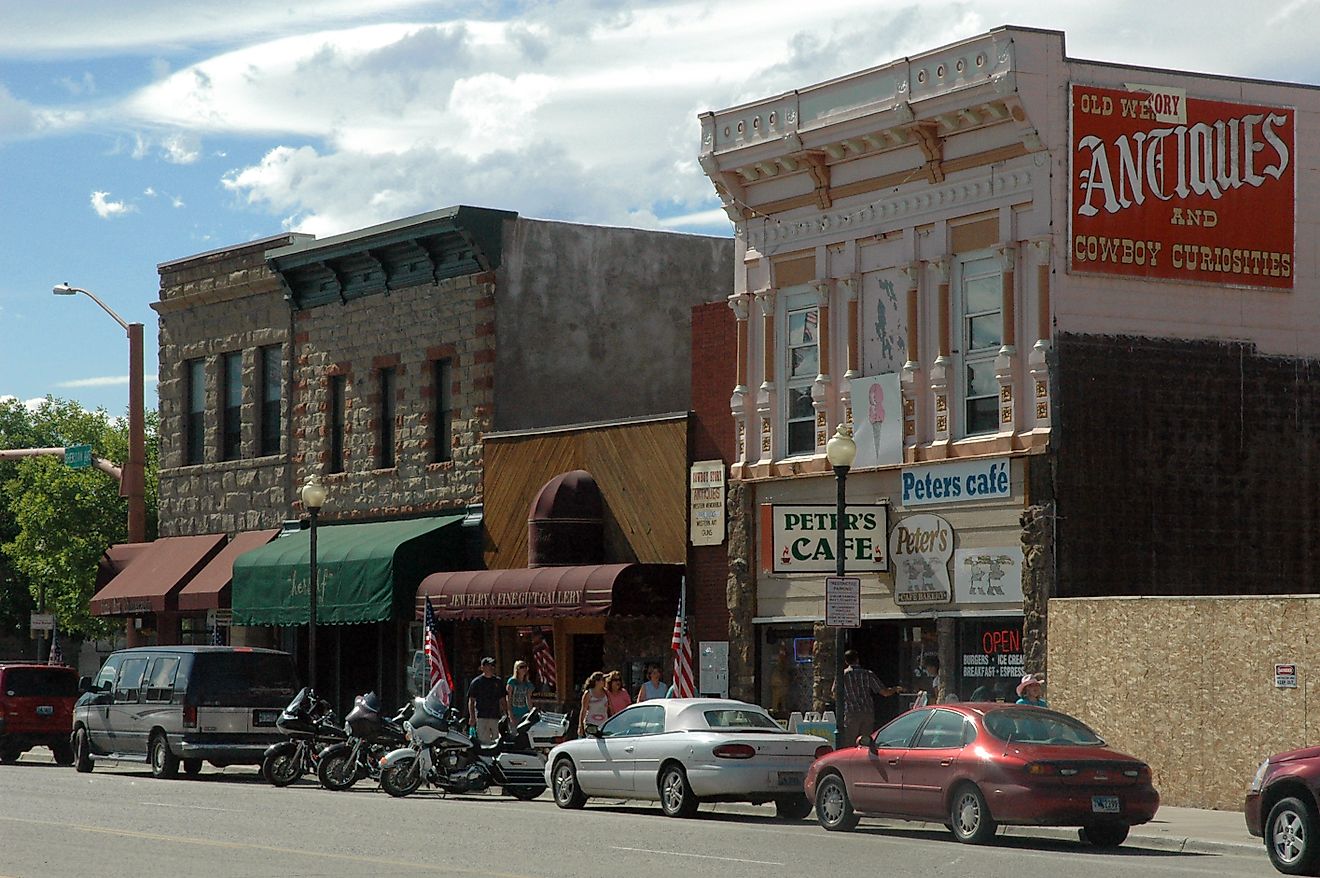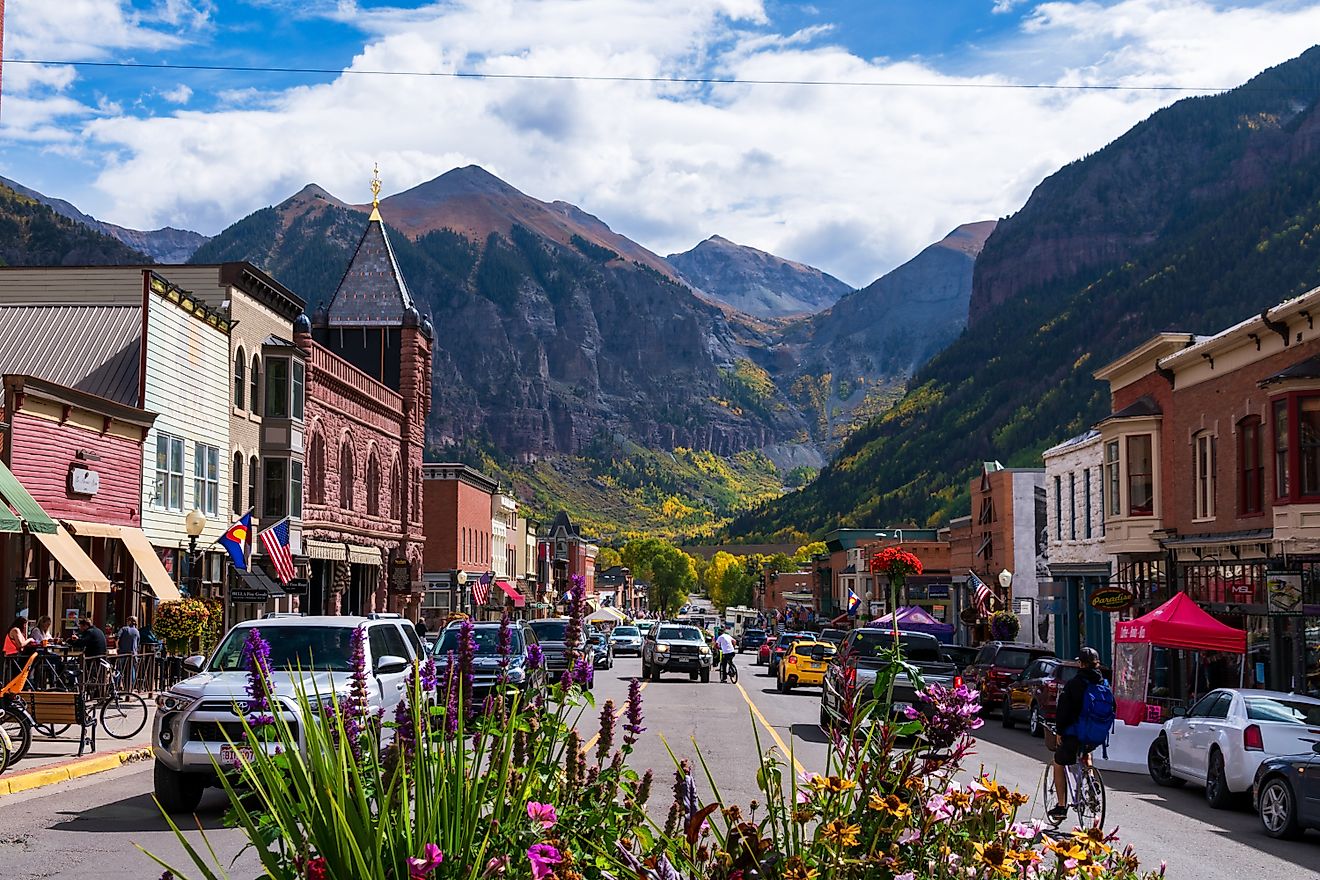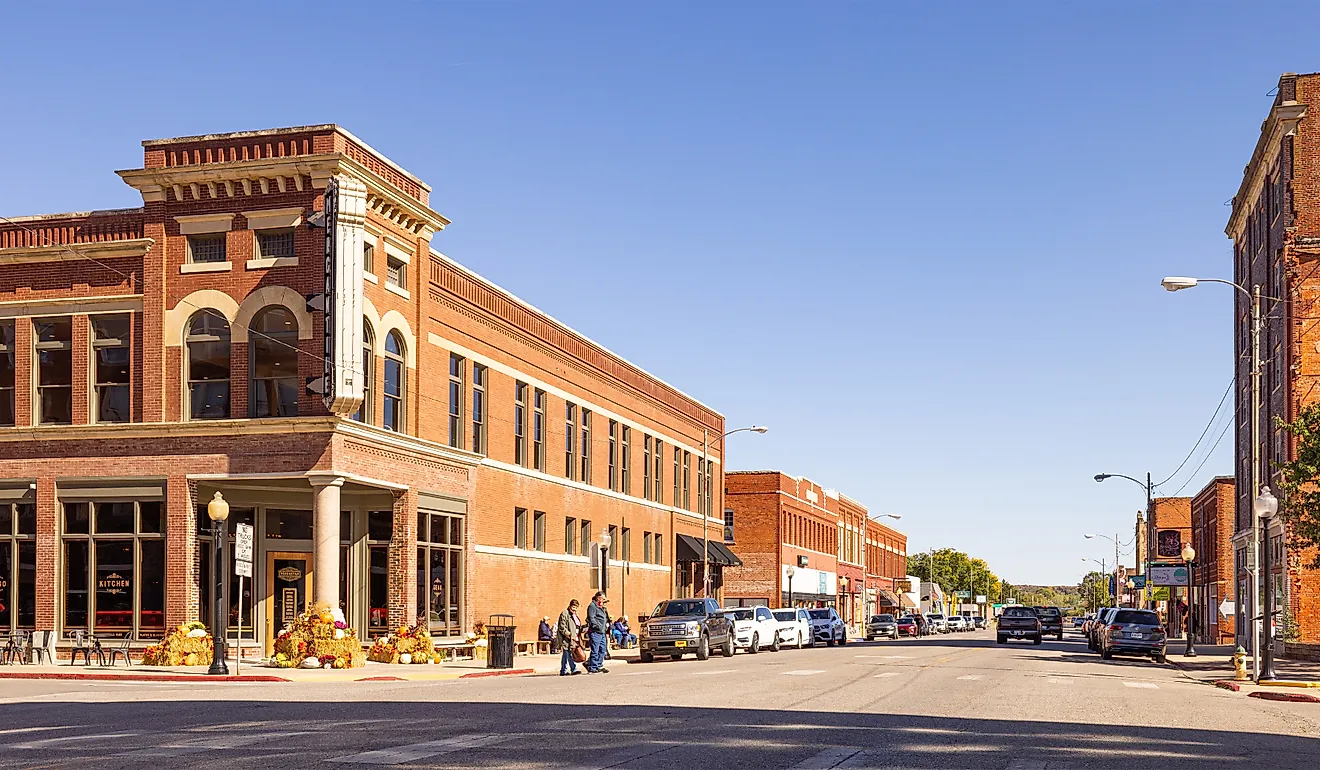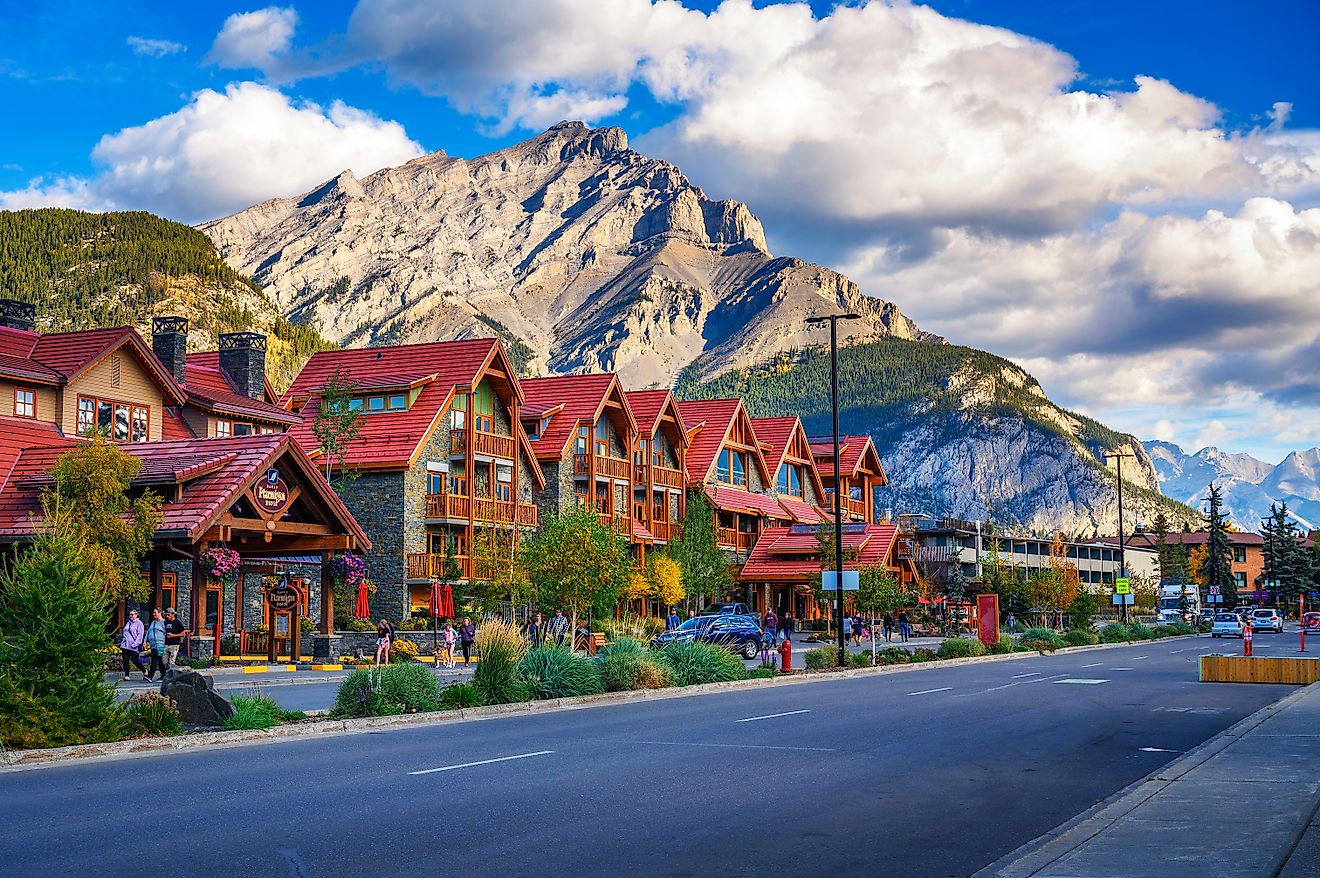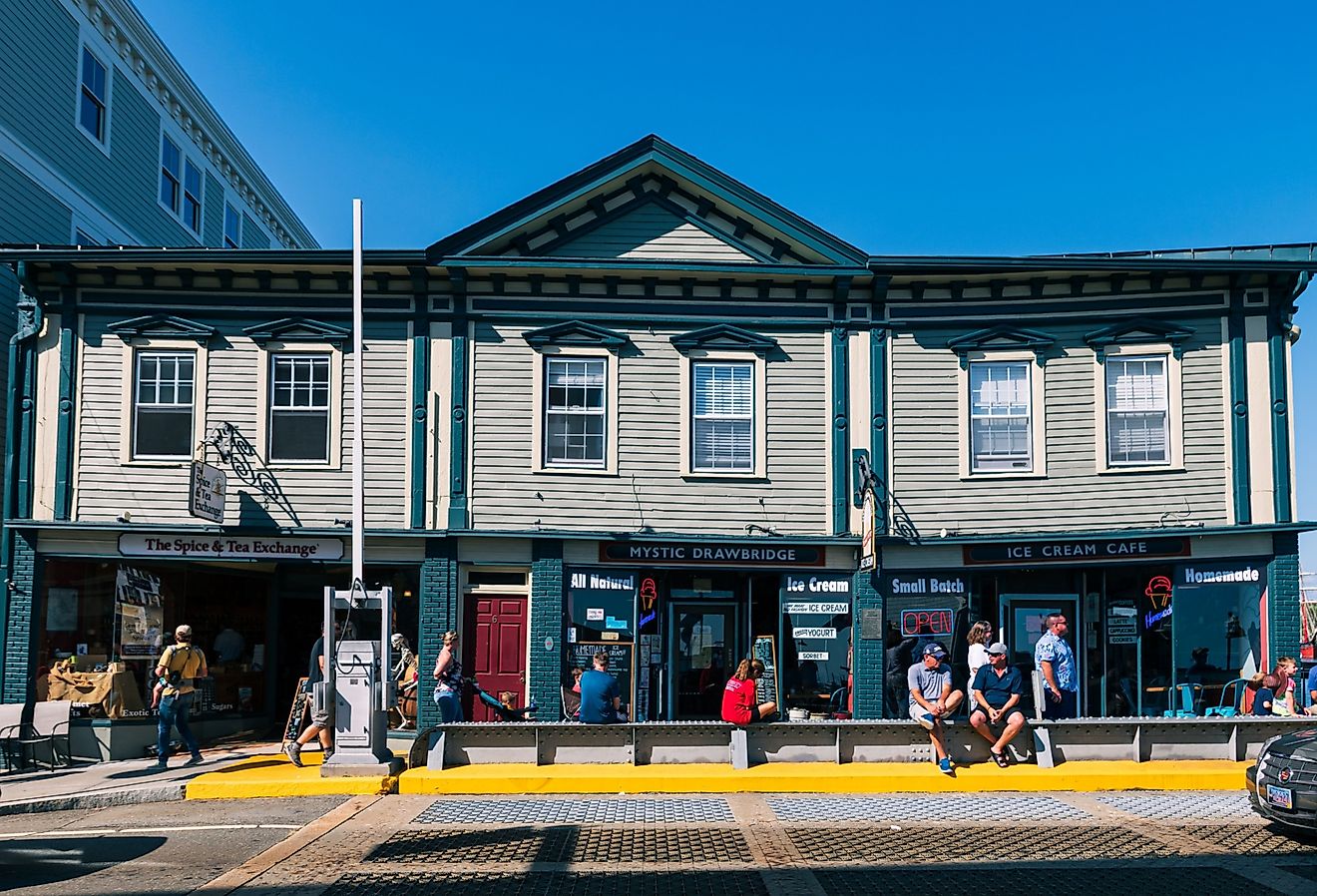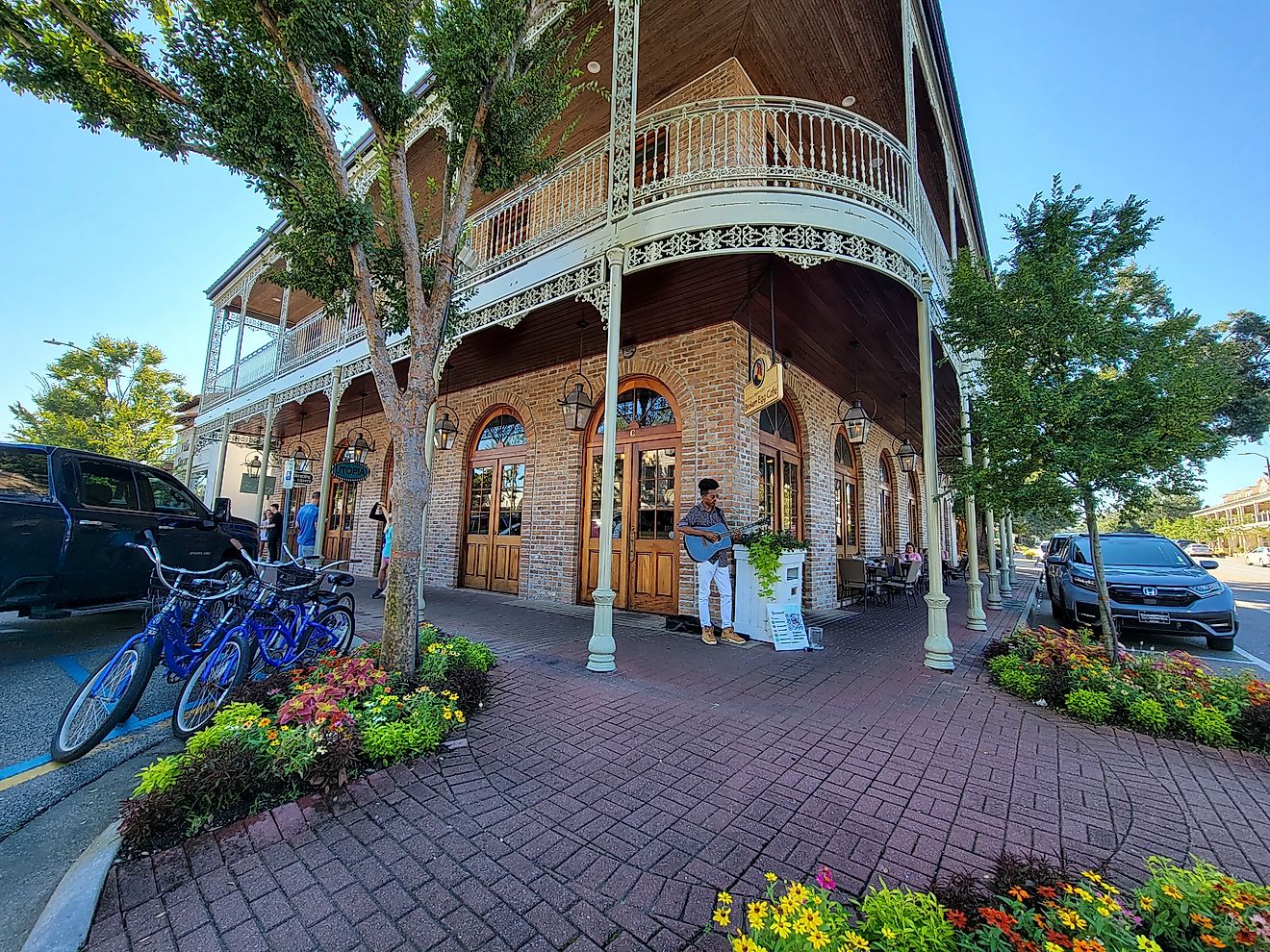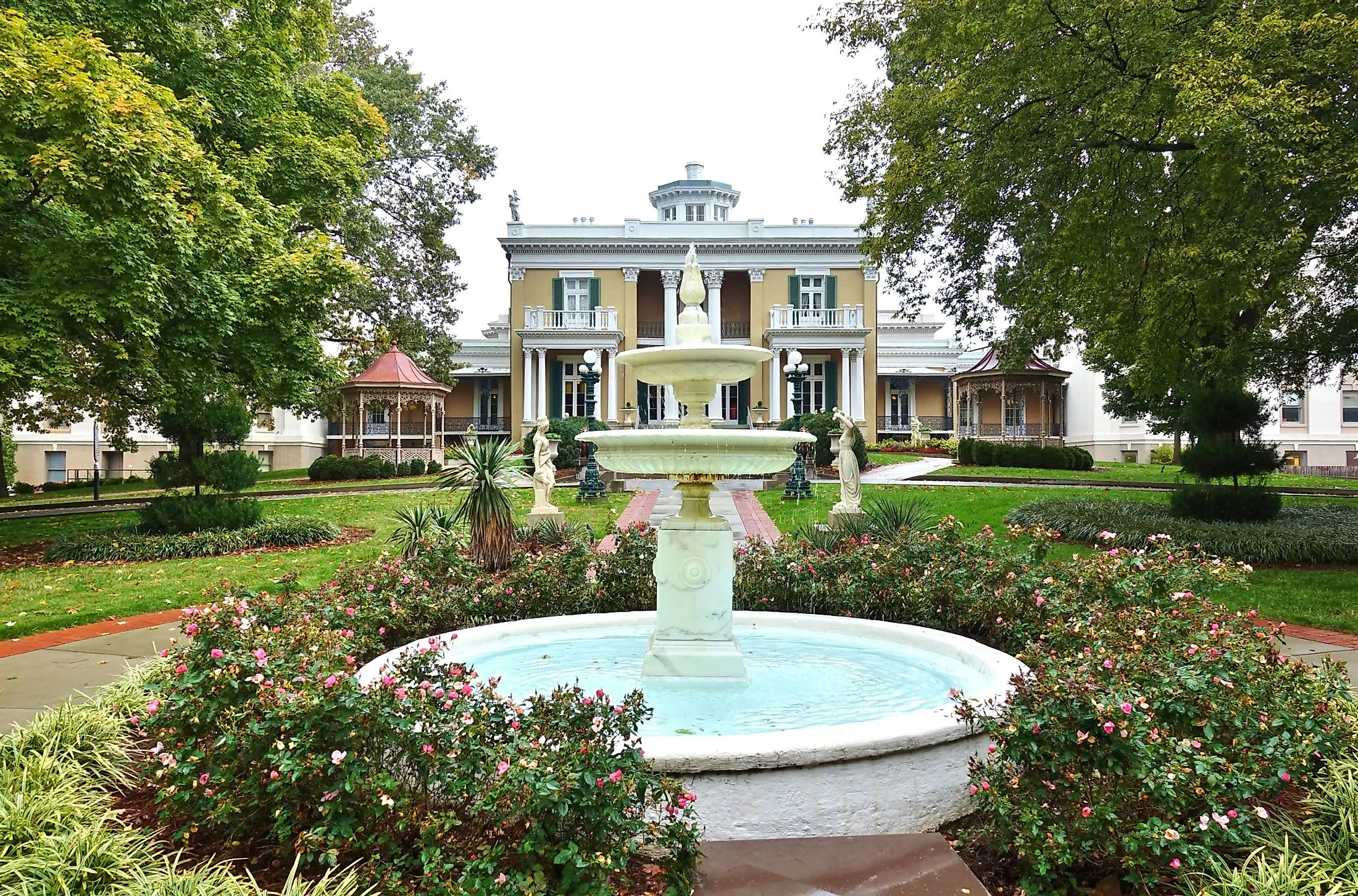
8 Civil War Sites In Nashville Every History Buff Will Want To See
The city of Nashville in the US State of Tennessee is known for its vibrant history in the American Civil War with countless sites and stories. One can travel back in time to some of the greatest battles during the war by visiting these Eight must-see sites around the city.
Battle of Nashville Monument Park
Set on the former 1,500-acre Oscar Noel farm, the park is the site stormed by the Federal troops during their assault on Stewart's line. History fans come to the small park to see the white granite-and-bronze Battle of Nashville Monument and the towering oak tree. The monument, also known as the Peace Monument, honors the sacrifices of the Confederate and Union soldiers who fought in the December 15-16, 1864 Battle of Nashville. It also honors the American soldiers who later fought in the First World War. The "basket oak" tree that stood on the farm during the battle is now a verified "Witness Tree" by the Tennessee Landmark and Historic Tree Registry. Sculpted by Giuseppe Moretti of Italy, the beautiful Italian-chiselled monument was re-built after the first, 30-foot obelisk-one, dedicated on Armistice Day, 1927, was destroyed by a tornado in 1974. Cleaning and re-setting the bronze centerpiece of the old monument, his new design dedicated on June 26, 1999, encompasses two rearing steeds for the North and the South, yoked together by a young man symbolizing all soldiers. There's the word "UNITY" inscribed on the banner entwining the horses, and a poem on the North Face, reading "...Forces That Struggled Here At The Fierce Battle Of Nashville..." Set at the corner of Granny White Pike and Clifton Lane, the park is open from dawn to dusk with free public admission.
Belle Meade Plantation
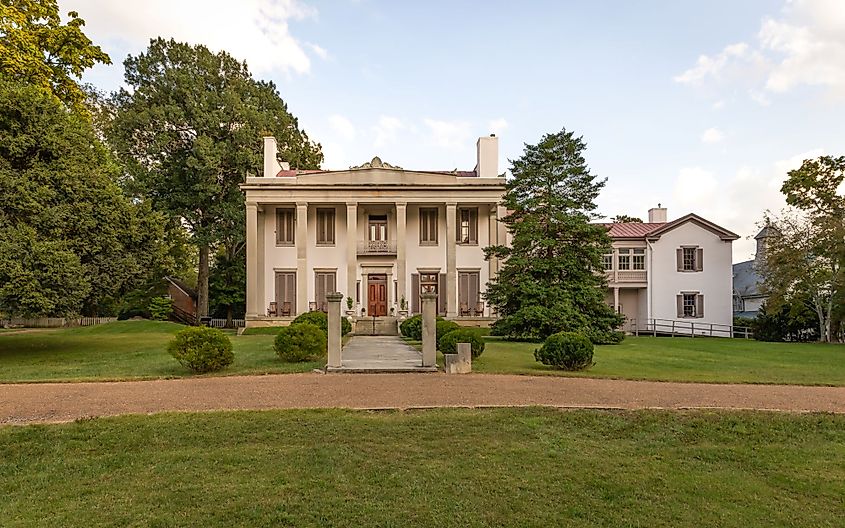
The 30-acre historic site set west of the city was one of the largest private estates in Nashville that comprised a 5,400-acre flourishing property and home to five generations of the Harding-Jackson family. Scarred by the bullets from the Civil War, people come to the "Queen of the Tennessee Plantations" for the significant history, as well as for horses. Upon expanding his home from the original log cabin, the owner, John Harding, loved and bred horses for racing. A large population of slaves worked for him as tradesmen, jockeys, trainers, and groomsmen, along with the renowned head groomer Robert Green who stayed on as the highest-paid team member after the war. Belle Meade was the focal point of many skirmishes during the Battle of Nashville that riddled the walls with bullet holes. It also served as the headquarters for Confederate Gen. Chalmers and hosted the likes of Andrew Jackson, Mrs. Cleveland, Robert Lincoln, General Grant, General Sherman, General Hancock, and Adlai Stevenson. The Harding Cabin offers demonstrations on Fridays and Saturdays from April through October to see the frontier life of 1819, while the 1853 Greek Revival mansion is open for touring throughout the year. The plantation is also known for producing hams and honey for sale, as well as for its Martha's at the Plantation restaurant supplied with organic produce by an on-site urban farm, The Harding Garden.
Belmont Mansion
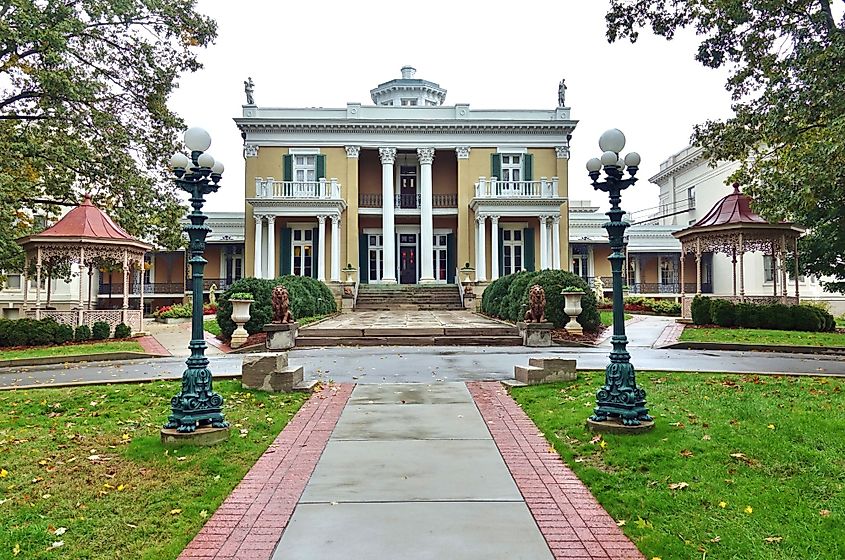
Belmont Mansion's story revolves around the life of its proprietress, Adelicia Acklen, born on March 15, 1817. Having lived a life reflected of a wealthy woman in the 19th century, she had ten children, wed three times, and lived through the Civil War. She was first married at 22 to a slave-trader-turned plantation owner, who was 28 years her senior. Upon his death in 1846, Adelicia acquired 8,700 acres of estate and cotton plantations in Louisiana, a 2,000-acre farm in Tennessee, and over 50,000 undeveloped acres in Texas, along with stocks, bonds, and 750 slaves. Marrying a lawyer at 29, their mansion was built by enslaved African Americans and European servants. Designed as an Italian villa with elaborate gardens and numerous outbuildings, it reflected their political and social stance. Completed in 1860, Adelicia and Joseph entertained visitors and raised a family at Belmont Mansion. Living in Louisiana, where he managed the Angola plantation, among other land holdings, his death in 1963 in the midst of the Civil War came as a shock to the family back in Nashville. Traveling to extract 2,800 bales of Acklen cotton that the Union and Confederate forces wanted to destroy, Adelicia sold it illegally to a broker in England for $960,000-worth of gold. She soon married the third time to a doctorate widower, while the estate would later open to the citizens of Nashville for enjoyment. In 1913, the mansion was purchased by two women to become the Belmont College. Upon changing ownership again in 1951, it became the Belmont University, known today as a coeducational, liberal arts school offering graduate degrees.
Carnton
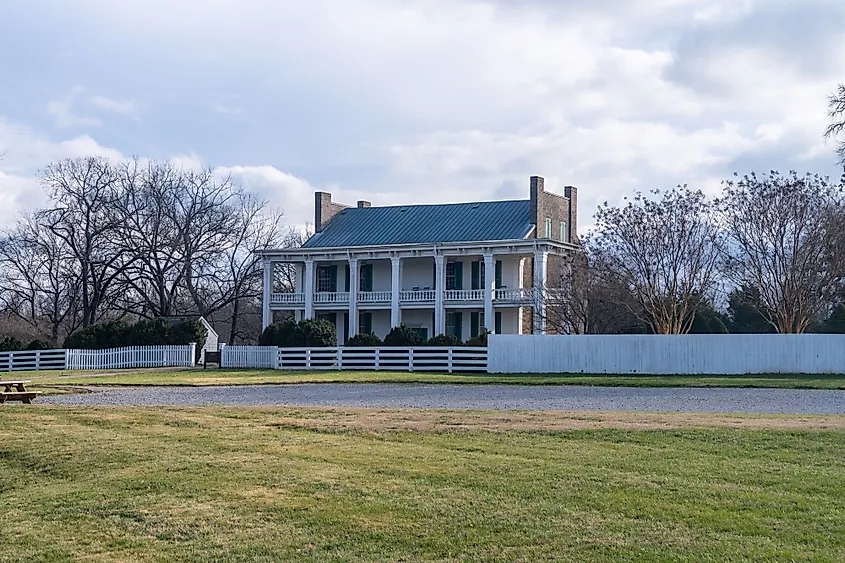
The large former Confederate field hospital for the Battle of Franklin is located at one of the Civil War battlefields near Nashville, at 1345 Eastern Flank Circle. Its white-columned façade, with lush surroundings, evokes a sense of peace from afar but comes with a ghosting tale from the past. Prior to the war, Carnton was a mayoral home that was visited by President Andrew Jackson, among many other revered Americans. The focal point in the Battle of Franklin, Carnton became the largest field hospital treating and healing hundreds of injured and dying Confederates. The hospital also witnessed the death toll of more than 7,000 soldiers from the bloodiest battle in the Civil War, whose souls allegedly still haunt the house. Today, one can see the historical evidence in the blood-stained floors from soldiers, along with a guided 60-minute house tour of Carnton for $18.
Fort Negley
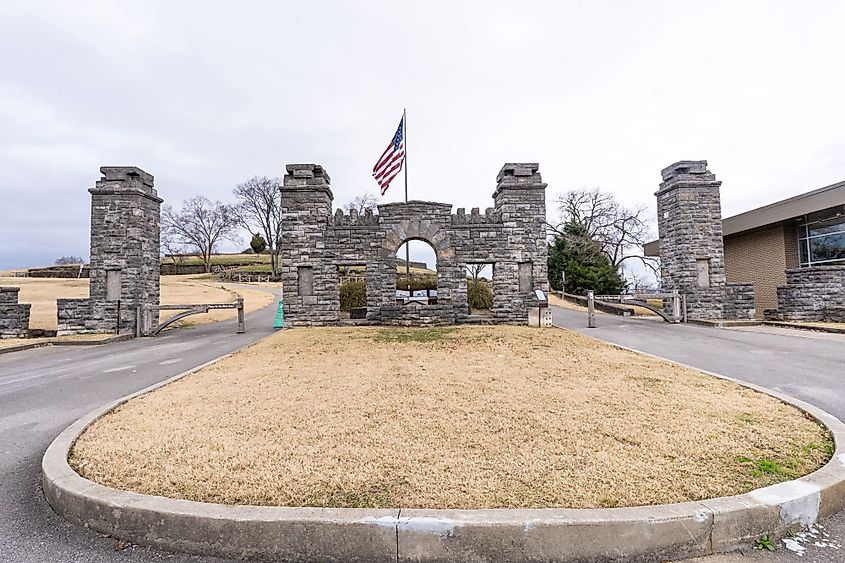
Fort Negley was erected during the Civil War by the Union troops after they took control of the city in 1862. The visitor center adjacent to the original fort offers self-guided tour maps to explore the fort at one's own pace, as well as regular events and educational programs on the fort's past and role in the Civil War. There is also an educational film reiterating various details, including the flow of the battle, along with re-enactments at the fort throughout the year. Despite serving as the Union troops' base for years, the biggest inland fort was omitted in the battles and spared of the war scars that many other sited endured. Listed on the U.S. National Register of Historic Places, the historical Civil War Site stands proudly in the south of Nashville at 1100 Fort Negley Boulevard for admission-free visits.
Shy's Hill
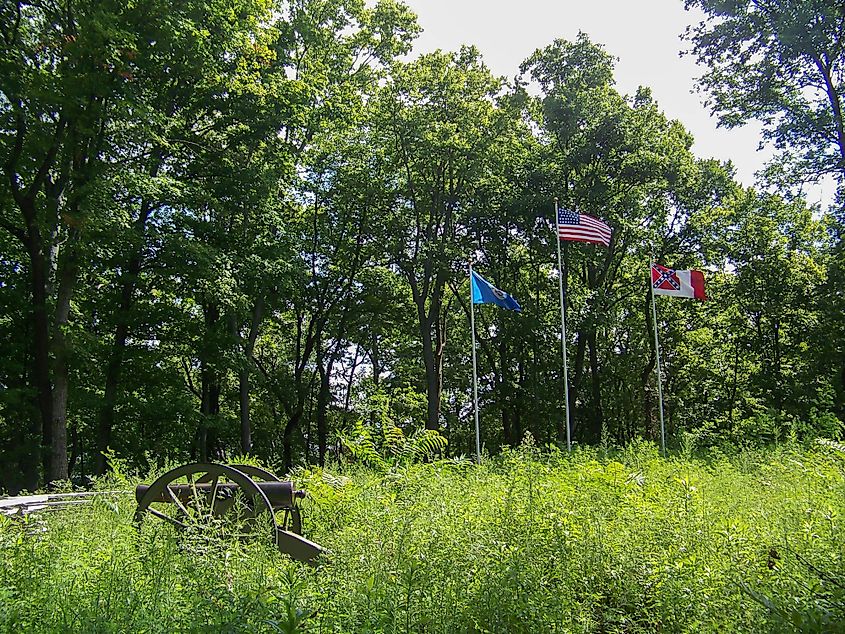
Upon charging on December 16, 1864, the Union caused the Confederate left flank to fall apart during the Battle of Nashville. Formerly known as Compton's Hill, the site marks the pivotal location where the Union achieved victory in the Civil War. Set on Benton Smith Road just south of the Harding Place, history fans visit Shy's Hill to see the hallowed ground and its memorials with a reminiscing vibe of its by-gone days lingering in the air. Now, a sub-urban hill in Nashville, it is laden with shops, homes, and roads in the surroundings of a wooded natural area for a peaceful getaway right in the city. Inclusive with scenic trails overlook, and commemorative plaques, one can attain some Civil War knowledge along with exercise is a great outdoor setting.
Stones River Battlefield
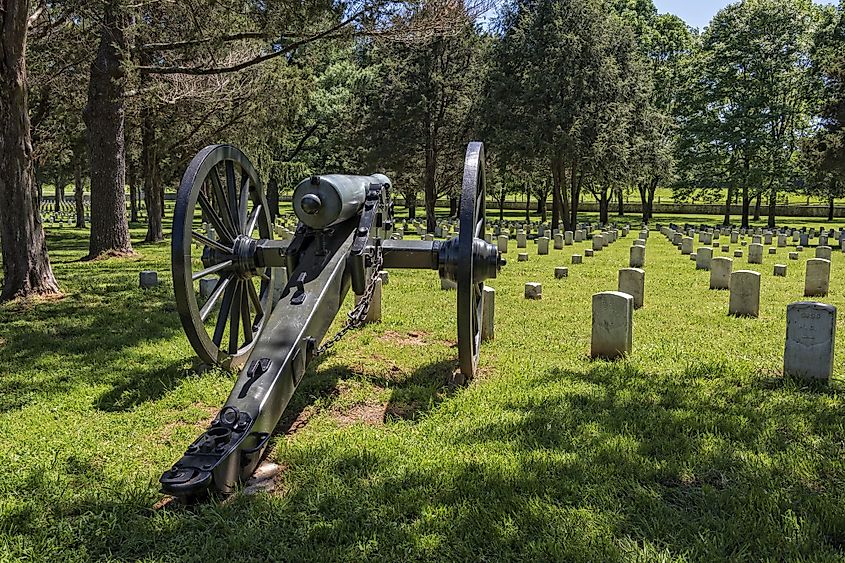
The battlefield where the Union achieved the course-changing stronghold in Middle Tennessee is an extremely popular destination among the Civil War history fans. The Stones River Battlefield is set near Nashville at 3501 Old Nashville Highway, just a short drive from Murfreesboro. The site is open daily from 8:00 am to 5:00 pm with free admission, including a visitor's complex with a short slide show and a museum housing Civil War artifacts. There are various ways to get in touch with one of the bloodiest conflicts of the war, including guided caravan tours from May through October, where one drives after the tour vehicle, along with bike and walking tours. Some of the most notable sights on the battlefield include the Hazen Brigade Monument at the spot of the violent standoff, the picturesque Fortress Rosecrans, and the somber cemetery. Upon absorbing the knowledge, one can take advantage of the hiking, jogging, and walking trails that also offer animal-sighting opportunities. Comprising paved trails and those with more difficult terrain for various skill levels, one can reminisce over the discoveries made at the Stones River Battlefield during a stroll or some exercise.
Travellers Rest Historic House Museum
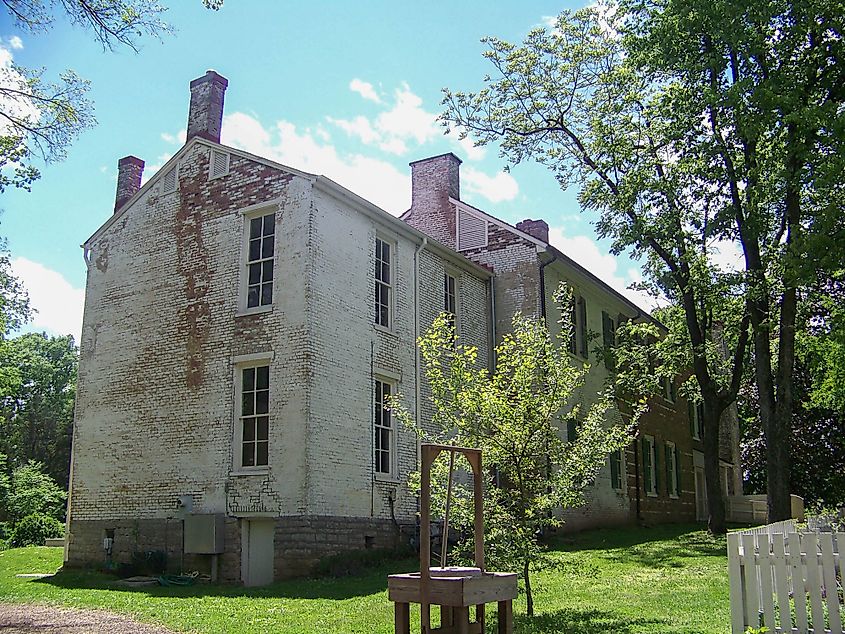
The Travellers Rest was constructed in 1799 as a plantation and home of the politician, lawyer, and businessman, Judge John Overton. Also an advisor to President Andrew Jackson, his mansion served as the headquarters for Confederate General John Bell Hood during the Battle of Nashville. Now comprising a historic museum and a Civil War site in Nashville, it showcases exhibits about the house's history. Set at 636 Farrell Parkway, the historic site is open for visits with free admission for kids, and various types of discounts, to let one explore the property and learn the details about its role in the Civil War.
History fans will revel when seeing these significant Civil War sites in Nashville via a walk in the park, a visit to a cemetery, a museum, or the focal battlefield. Set near nature and close to the amenities, one can feel part of the past right in the city for a memorable experience of re-visiting the grand war that changed American history.

